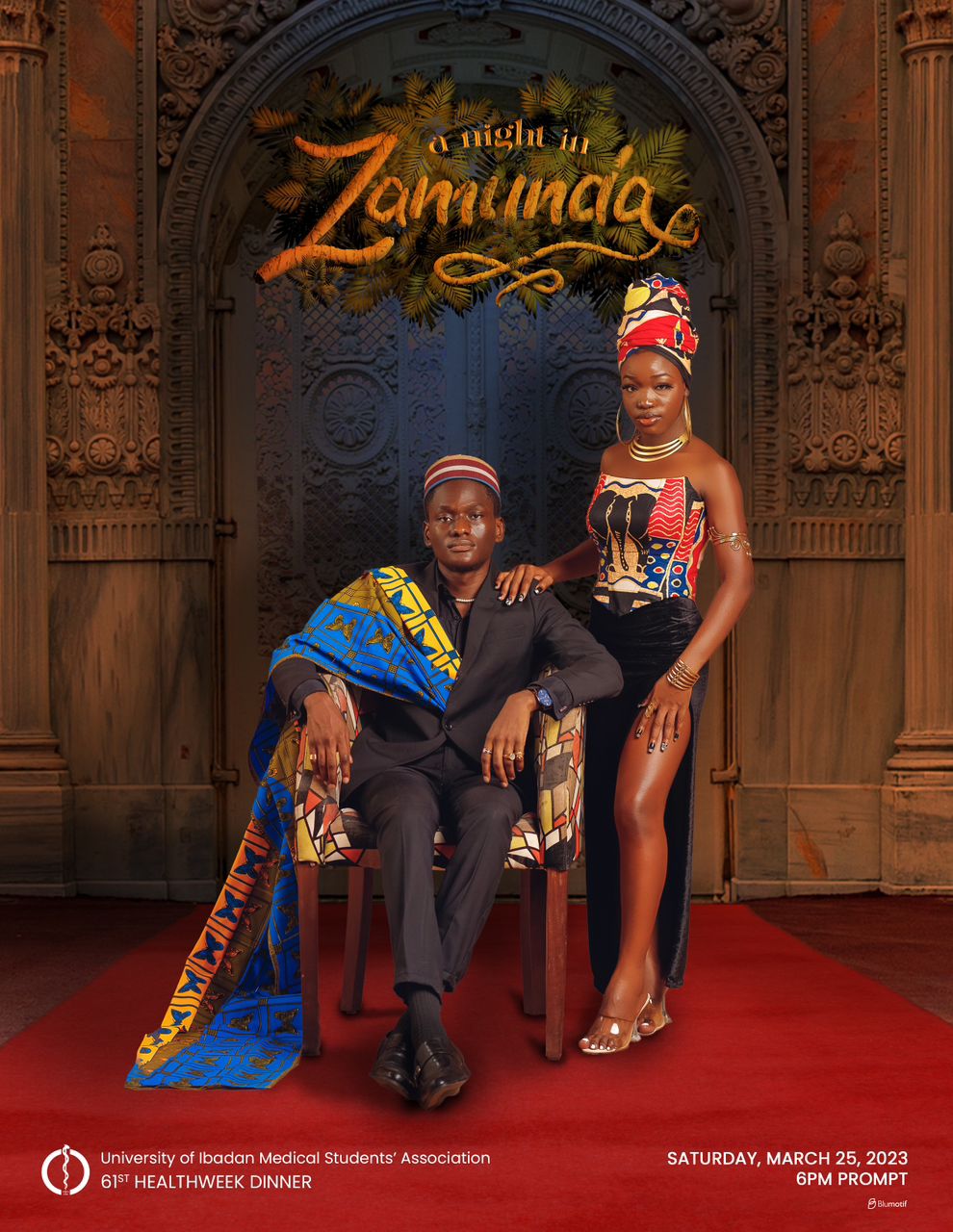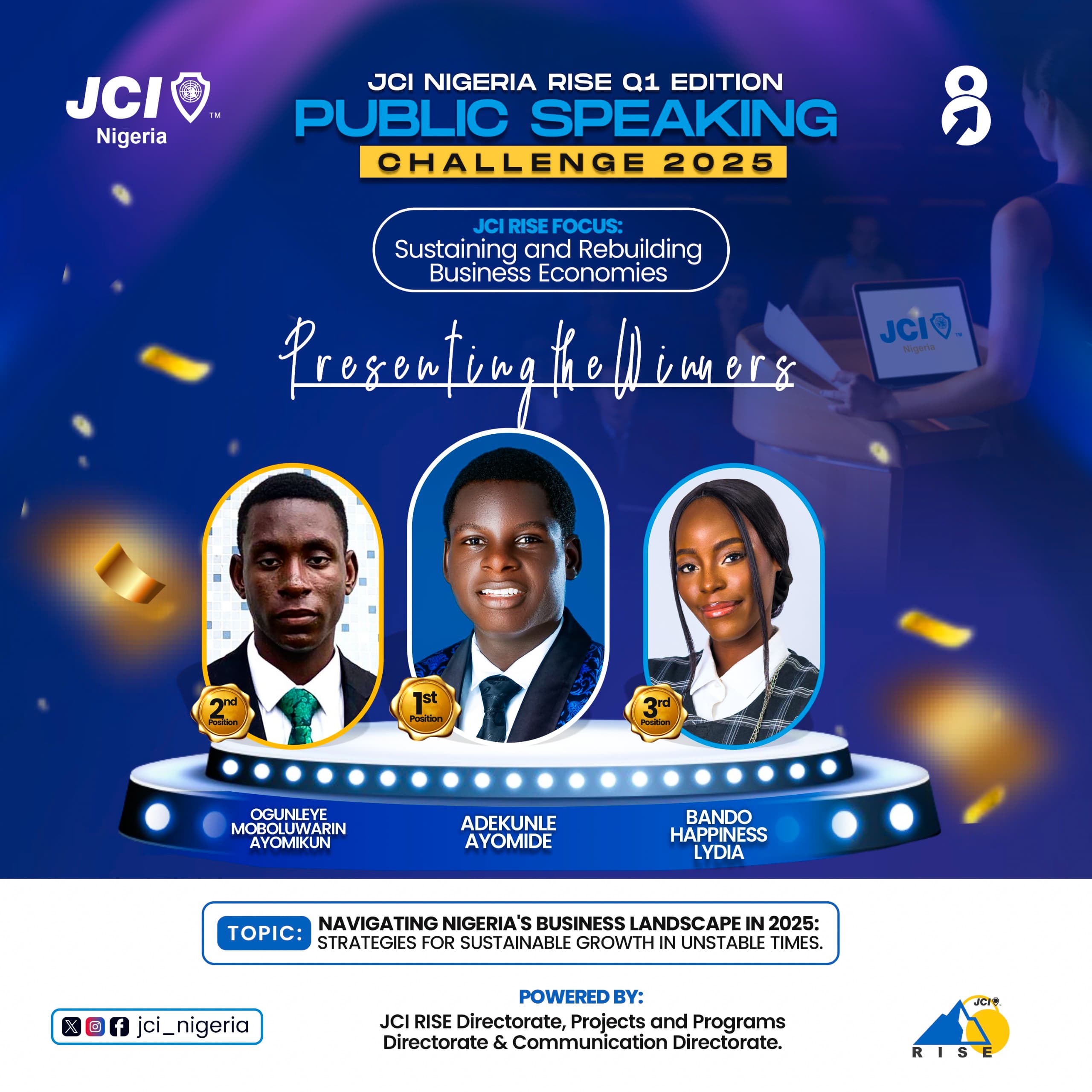A Night in Zamunda: All You Need to Know

Interview with The Dinner Committee Head
Afeezah Wojuade Opeolu Oreoluwa
Afeezah (interviewer): Please introduce yourself.
Miss Tongo: My name is Esosa Tongo. I am the head of the dinner committee for the 61st UIMSA health week.
Afeezah: Nice to meet you. Thank you for consenting to this interview.
Miss Tongo: You’re welcome.
Afeezah: What is the inspiration behind the theme “A Night in Zamunda?”
Miss Tongo: When we were coming up with a theme there was a lot of back and forth between members on what we wanted and I wouldn’t say there was an inspiration per se. We got the idea from someone who wasn’t a member of the committee and then fine-tuned it. We decided we wanted to do something that was more of African royalty.
Afeezah: So it’s not linked to the movie “Coming to America?”
Miss Tongo: Oh yes, we got the name from the movie but the general idea is everyone dressed elegantly in cultural attire, not limited to Nigeria alone.
Afeezah: What are we to expect from the evening?
Miss Tongo: Elegance and fun. We want UIMSAites and non-UIMSAites to have the time of their lives. We know everyone is busy with one thing or another. We just want everyone to have fun and be themselves while being elegantly dressed.
Afeezah: Are you going to fly us to Zamunda?
Miss Tongo: LOL, we hope to do the best we can to bring Zamunda to you.
Afeezah: Okay, thank you for that. Can we get a rough estimate of how much the dinner will cost UIMSA?
Miss Tongo: Hee! (Laughs) I don’t think I’m at liberty to say.
Afeezah: Okay…can you please walk us through the planning process of this dinner? Any challenges so far?
Miss Tongo: Yeah, there have been challenges. For example, the election that was shifted is one challenge we’ll be having moving forward. Fundraising especially has been traumatizing. It hasn’t been as awesome as we would have liked but we’re definitely moving forward. As regards vendors, compared to last year’s prices it has been outrageous.
Afeezah: Sorry about that. I hope you have all the help you need in surmounting these challenges.
Miss Tongo: Well, we have God. Things will fall into place eventually.
Afeezah: What exactly is the expected wardrobe? Will any African attire do (e.g. a nice Africa Ankara dress, lace, guinea), or are we going for core African regality?
Miss Tongo: Alright. First, I’d like to say another reason for choosing this theme was because I personally have heard UIMSAites talk about how they don’t have money to be sewing suits for the dinner or how dinner dresses are expensive. So the idea was to give people a chance to experiment with what they already have. So yeah, UIMSAites are supposed to dress in African excellence, I suppose. You can have your Ankara but it would be nice if we had people representing the various countries in Africa (e.g. someone dressed as Cleopatra from Egypt, we can also have people dressed like South Africans, just to have a large diversity). Then we can come down to Nigeria and have our agbada or Fulani attire or whatever it is you have. That can work too.
Afeezah: Okay, thank you. So are we to expect Zamundan meals?
Miss Tongo: (Laughs) What do you mean Zamundan meals? What are Zamundan meals?
Afeezah: Well I trust the planning committee to know that. I don’t know, maybe meals that were featured in the “Coming to America” movie? The essential question is can you give us a sneak peek into the menu? What are we expecting?
Miss Tongo: Trying to be as vague as possible, just expect African meals essentially.
Afeezah: Just African meals?
Miss Tongo: Yes.
Afeezah: Okay. Any special guest performances we are to look forward to?
Miss Tongo: We’ll leave it as a surprise for you guys.
Afeezah: Can’t wait to be presently surprised by what you’re cooking. We couldn’t help but notice the ticket price has gone up since last year (an increase of one thousand naira). Care to enlighten UIMSAites on why that is and what they should expect that’s different from usual with the new price?
Miss Tongo: I think it’s a no-brainer that we have increased ticket prices due to the situation of things on ground. Like I said, the prices of things have really sky-rocketed so there is a need to increase prices. But as regards changes, for starters we are changing our venue. We will no longer be using Apex so I guess that’s a big step. What else can I say without spoiling it? Okay yes, better performances. I should mention that the dinner is also being merged with pageantry as I believe you’re aware. So yeah, you can expect so much more. Great meals, nice desserts and appetizers, mock tails and all of that.
Afeezah: I’m already excited! Is there a reason why the venue was changed?
Miss Tongo: Capacity. Apex is quite small for the projected number of guests. We just wanted a bigger space that could accommodate all of us without having to compromise on our arrangement and all.
Afeezah: That’s very thoughtful of you. Will UIMSA vendors, especially those selling Afro-centric products, be featured at the event?
Miss Tongo: Um, well we didn’t actually think of that but I think vendors selling Afro-centric products have been advertising themselves already. So let me just say no, we didn’t make room for that.
Afeezah: But will any UIMSA vendors be featured at the event?
Miss Tongo: Not to the best of my knowledge. When you say vendors, we will have UIMSAites perform so in a way, I guess.
Afeezah: How about funding? How is UIMSA raising money for this event?
Miss Tongo: Committee members have reached out to those they know. I, personally, have reached out to family and friends. We also reached out to companies and got a positive feedback form one, though we’re yet to hear from the others. We’ve just tried to diversify and reach out in any way that we can to those who can possibly help.
Afeezah: So this part should excite our audience. Are there any ticket giveaways we should anticipate? (wiggles eyebrows)
Miss Tongo: We haven’t had any sponsors yet to that effect but hopefully before the dinner date we should have some.
Afeezah: If there are can you give us the criteria for winning? Or you haven’t decided on that?
Miss Tongo: I am not at liberty to say as we are yet to decide on that.
Afeezah: Alright, if you were asked to sell the dinner to a reluctant UIMSAite what would you say?
Miss Tongo: I would say it’s one make-believe night to forget about all your problems, all the problems College brings and all life problems generally and just live and let live, be loose and have fun. And great food.
Afeezah: I’m holding you for the food oh. If you had to sum up the dinner in one word, what would that be?
Miss Tongo: Hmm, that’s hard. I would say…omo. To be honest…
Afeezah: Okay, one sentence?
Miss Tongo: I would say a fairytale come true.
Afeezah: Hmm, nice. Any closing comments?
Miss Tongo: Generally, I would encourage UIMSAites to come for the dinner. Have fun, get the opportunity to play dress up and be a different you. Come for dinner.
Afeezah: Thank you so much for this interview Eseosa. Have a good day.
Miss Tongo: And you too.


